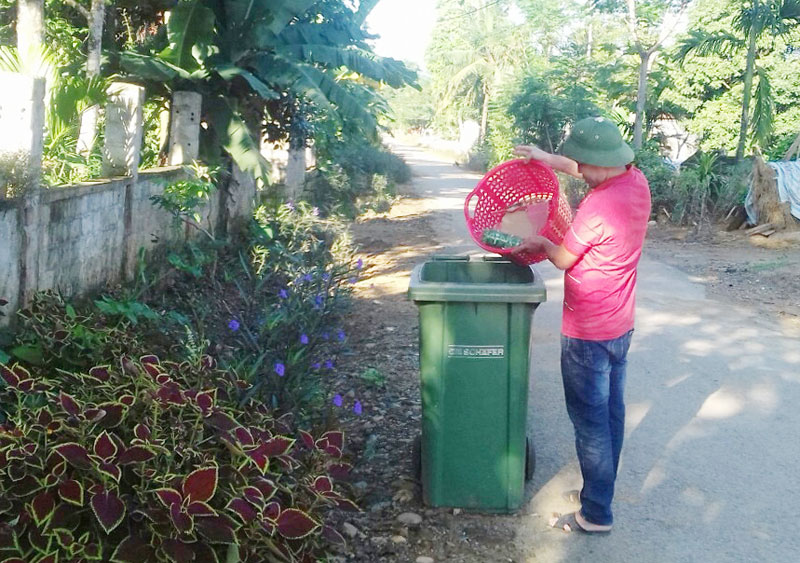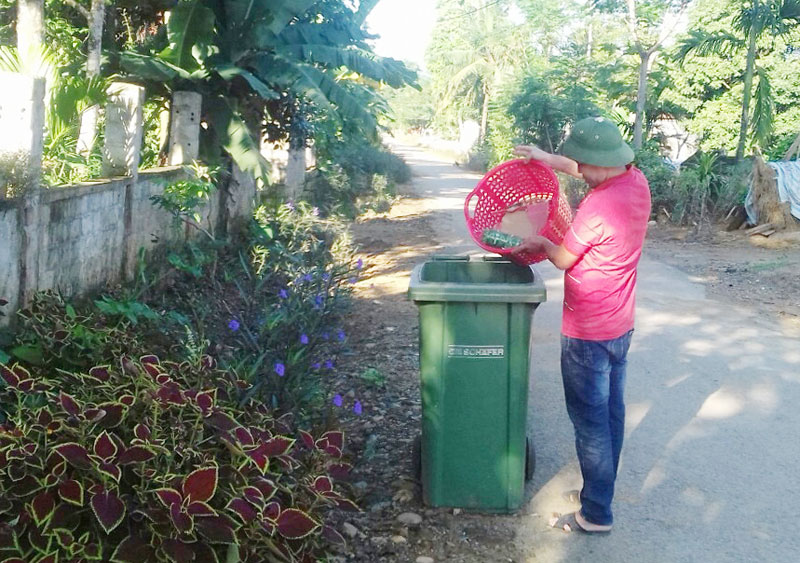


 Farmer
members of Trac hamlet, Lac Thinh commune, Yen Thuydistrict collect plastic waste at prescribed places,
ensuring green - clean - beautiful environment.
Farmer
members of Trac hamlet, Lac Thinh commune, Yen Thuydistrict collect plastic waste at prescribed places,
ensuring green - clean - beautiful environment.
Lac Thinh commune has 4/11 hamlets located adjacent to Ho Chi Minh road. Taking advantage of that, nearly 200 business households focus on developing services and commerce.
In addition, there is a new rural market in the area that attracts people in the area and surrounding areas to trade and exchange goods. Through field inspection, most small businesses and people have a habit of using plastic bags to store food, storing furniture...
Therefore, the amount of plastic waste from business establishments is very inceasing, causing difficulties for waste collection units, potentially causing environmental pollution.
Facing that fact, the communal People's Committee has cooperated with departments, branches and unions to develop a pilot model "Famer members say no to plastic waste" in Trac hamlet to change habits, proceed to eliminate use plastic bags, disposable plastic products. They join hands to minimize plastic waste, contributing to environmental protection.
In order to concretize by practical actions, the communal People's Committee donated 30 members to make points at Trac Farmers' Association in plastic baskets for reuse. Use self-made products such as cloth bags, bamboo baskets, plastic lanes... in everyday life.
At meetings, neighbors use glass cups to store water instead of using bottled drinking water. Organizing troops to clean up the environment. They collect and classify plastic waste at least once a month and teach members how to classify waste, gather it in the right place according to regulations.
After 4 months of implementation, the model has brought about efficiency and increased people's awareness in minimizing the use of plastic waste. Up to now, the model has been replicated in 11 Association establishments with 390 members participating.